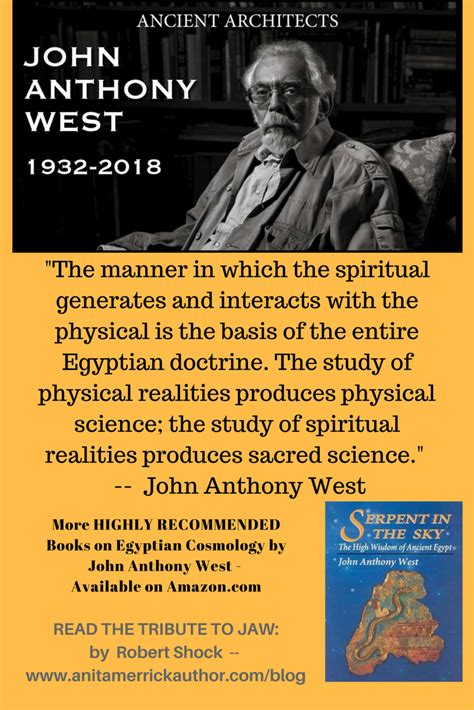Цитата Уильяма Викендена
Суть современности в том, что прогресс больше не ждет гения; вместо этого мы научились полагаться на организованные усилия обычных людей. Наука стара как мир, но эффективная организация науки нова. Древняя наука, как и добыча россыпей, была занятием старателей-одиночек. Крупицы истины были найдены, но общее богатство знаний увеличивалось медленно. Современный человек начал преобразовывать этот мир, когда начал систематически копать скрытые жилы знаний.
Темы цитат
Древние
Начали
Эффективные
Усилия
Сущность
Вера
Обнаружена
Гений
Скрытый
Увеличился
Вместо
Знаний,
Изученных
Как
Более Длинный
Человек
Мужчины
Шахта
Горное дело
Современный
Современный Человек
Современность
Новые
Самородки
Старые
Обычные
Обычные Люди
Организация
Организовали
Наш
Прогресс
Преследование
Поместите
Расу
Наука
Медленно
Одиночество
Этот Мир
Тотальная
Трансформация
Истина
Жилы
Ожидает
Богатство
Богатство Знаний
Был
мир
Связанные цитаты
Способность мириться со сложностью и приветствовать противоречия, а не потребность в простоте и определенности, является атрибутом исследователя. Столетия назад, когда некоторые люди приостановили свои поиски абсолютной истины и вместо этого начали спрашивать, как все устроено, родилась современная наука. Любопытно, что именно отказавшись от поиска абсолютной истины, наука начала прогрессировать, открыв материальную вселенную для исследования человеком.
Настоящее достижение современной науки и техники состоит в том, чтобы взять обычных людей, дать им узкую и глубокую информацию, а затем, посредством соответствующей организации, организовать объединение их знаний со знаниями других специализированных, но столь же обычных людей. Это избавляет от потребности в гениальности. Полученная производительность, хотя и менее вдохновляющая, гораздо более предсказуема.
На мой взгляд, «Храм человека» — самая важная научная работа этого столетия. Р. А. Шваллер де Любич окончательно доказывает существование легендарной «священной науки» Древних и систематически демонстрирует ее modus operandi. Именно эта великая наука, основанная на глубоком и точном знании космических принципов, объединила искусство, религию, науку и философию в единое целое и поддерживала Древний Египет в течение трех тысяч лет.
Наука имеет простую веру, которая превосходит полезность. Почти все люди науки, все ученые люди в этом отношении, а также люди простых нравов, имеют его в той или иной форме и в той или иной степени. Это вера в то, что привилегия человека — научиться понимать, и что это его миссия. Если мы откажемся от этой миссии в условиях стресса, мы откажемся от нее навсегда, потому что стресс не прекратится. Знание ради понимания, а не просто для того, чтобы восторжествовать, — вот суть нашего бытия. Никто не может определить его пределы или установить его окончательные границы.
Наука означает только знание; и для [греческих] древних это означало только знание. Таким образом, любимой наукой греков была астрономия, так как она была столь же абстрактна, как и алгебра. ... Мы можем сказать, что великий греческий идеал заключался в том, чтобы не использовать полезные вещи. Рабом был тот, кто научился полезным вещам; Свободный человек был тем, кто научился бесполезным вещам. Это до сих пор остается идеалом многих знатных ученых в том смысле, что они желают истины, как ее желали великие греки; и их позиция есть внешний протест против вульгарности утилитаризма.
Индустриальное общество — это не только общество, содержащее «промышленность», крупные производственные единицы, способные удовлетворять материальные потребности человека таким образом, чтобы устранить бедность: это также общество, в котором знание играет роль, совершенно отличную от той, которую оно играло в прежние социальных формах и действительно обладает совершенно иным типом знания. Современная наука немыслима вне индустриального общества: но современное индустриальное общество также немыслимо без современной науки. Грубо говоря, наука — это способ познания индустриального общества, а промышленность — это экология науки.
Наука расширяется, а вместе с ней и наше видение Вселенной. хотя этот новый и постоянно меняющийся взгляд может не всегда утешать нас, он обладает достоинством истины в соответствии с нашими наиболее эффективными ресурсами для приобретения знаний. Никакая философия, нравственное мировоззрение или религия не могут быть несовместимы с открытиями науки и надеждой на существование среди образованных людей.
Там, где начинается вера, кончается наука. Оба эти искусства человеческого разума должны быть строго отделены друг от друга. Вера берет свое начало в поэтическом воображении; знание, с другой стороны, берет свое начало в разуме человека. Наука должна срывать благословенные плоды с дерева познания, не заботясь о том, коснутся ли эти завоевания поэтических фантазий веры или нет.
Постепенно... аспект науки как знания оттесняется на задний план аспектом науки как силы манипулирования природой. Именно потому, что наука дает нам возможность манипулировать природой, она имеет большее социальное значение, чем искусство. Наука как поиск истины равна искусству, но не превосходит его. Наука как техника, хотя она и может иметь небольшую внутреннюю ценность, имеет практическое значение, на которое не может претендовать искусство.
Для этого знания о правильной жизни мы искали новое имя... Поскольку теология — это наука о религиозной жизни, а биология — это наука о [физической] жизни… так пусть впредь экология будет наукой о [нашей] нормальной жизни… достойнейшей из всех прикладных наук, которая учит принципам, на которых найти... здоровую... и счастливую жизнь.
За годы, прошедшие с тех пор, как человек открыл силу, хранящуюся в атоме, мир добился медленного, но эффективного прогресса в деле подчинения этой силы человеческому контролю. Вызов может стать нашим спасением. Когда мы начинаем осваивать разрушительные возможности современной науки, мы движемся к новой эре, в которой наука сможет выполнить свое творческое обещание и помочь создать самое счастливое общество, которое когда-либо знал мир.
Меня постоянно интересует, как обычные люди производят знания и что значит для них познание мира. Я думал, что буду физиком-теоретиком, потому что мне нравятся взгляды физиков на мир — я нахожу общую теорию относительности и квантовую теорию захватывающими — но мне всегда было не по себе от идеи Абсолютной Истины. Одна из функций науки — помогать нам инструментально; это помогает нам создавать такие вещи, как микрочипы и спутники GPS. Но еще одна функция науки в современном мире — помочь нам почувствовать себя «во Вселенной как дома».
Это они [мужчины науки] владеют тайной таинственного свойства разума, посредством которого заблуждение служит истине, и истина медленно, но бесповоротно побеждает. Их логика открытия, демонстрации прогресса знания и развития идей, которые, как и земные потребности и страсти людей, остаются почти неизменными, являются уставом прогресса и жизненной искрой в истории.































